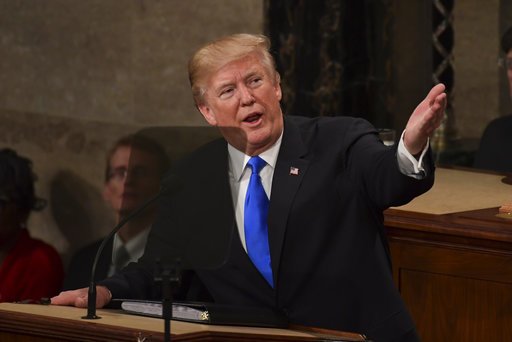
Working for the U.S. government should be a promising, life-long safety career for many Americans. And for tens of thousands of career civil servants, their job protections are their safety, preventing them from being fired at will and working from one presidency to the next. However, since the executive order, Schedule F, was initiated under former President Donald Trump back in October 2020, uncertainty about these protections looms over the heads of these civilians. Unlike today’s modern civil service system, Schedule F allows every civil servant to be fired by the president, and no president should have this control over ending their federal employees’ careers.
Schedule F dates back to Trump’s re-election loss in 2020, enacted in the heat of his anger. Under President Joe Biden in 2021, Schedule F was rescinded shortly after he took office. However, Trump promises to restore Schedule F if he wins the 2024 presidential election. In 2022, he spoke at a rally in South Carolina, saying he would pass critical reforms that would make every executive branch employee fireable by the president. Any executive employee with influence in confidentiality, policy-making, policy-determining and policy-advocating would be at risk. These employees are considered critical of the president’s agenda, something Trump would not take constructively as president. That is about 50,000 employees out of a workforce of two million fired for no good reason.
Civil servants are supposed to be hired on merit and hard to fire. But Trump wishes to replace these workers with “loyalists” in the “deep state,” in which he refers to the government secretly conspiring manipulative policies. At his rally in South Carolina, he exclaimed, “The deep state must be brought to heal.” He believes the government is filled with “villains” who are globalists or Marxists and anyone who ever raised objections to his policy agenda. Trump and his officials felt that firing employees was “justified” as they believed they deliberately sabotaged his agenda. A federal bureaucracy with so-called “loyalists” resembles the 19th-century spoils system before the current civil service system. Back then, the president would thank voters by appointing them to government positions, but this system ended around the passage of the Pendleton Act of 1883. In 2023, reverting to old patronage systems is not what a modern government entails. Instead, it mimics authoritarianism, favoring supremacy and fear within the leader. Trump is paranoid about sabotaging his agenda by civil servants, even though they are unbiased. Allowing a president to fire thousands of employees because he fears his agenda is being obstructed would be a crime. An executive branch filled with Trump praisers should sound alarming, as they could push his agenda so much that it could throw off the balance of power between the three branches of government.
Schedule F has unveiled the fragility of the civil service system that has been in place for 140 years. The Biden administration plans to pass an executive order to protect federal employees from Schedule F’s intentions, tightening the definitions of what types of federal jobs are exempt from the rule. The plan excludes all non-career political appointee positions turned over when a presidency ends. The protections include the right to repeal any firing or reassignment, arguably strengthening the federal bureaucracy because career civil servants have institutional memory — they have expertise and technical knowledge, which a loyal new hire would not. Truthfully, firing tens of thousands of employees would weaken the federal bureaucracy and sacrifice expertise critical to keeping the executive branch in line.
Nevertheless, legal experts say Trump could easily thwart these protections should he become president again. Trump knew that Biden was planning to block his attempts, but Schedule F lies on a solid legal base. Any roadblocks imposed by Biden are a joke to Trump and his former administration officials, who see it as a delay to the rest of his agenda. A president can simply revoke Executive orders at any time; undoubtedly, Trump would be quick to do so. Other campaigning Republicans wish to take Schedule F a step further, like presidential candidate Vivek Ramaswamy, who outlined an even more radical plan than Trump, shutting down multiple federal agencies and firing 75% of the federal workforce. However, legal and practical substances were not potent here. Biden’s current efforts are not enough to protect the employment of civil servants. To do better, they need to make tackling Schedule F a top priority by taking the issue to the House and Senate, though it has been in the past. The problem lies with getting Republicans to agree, which could be unthinkable. Legislation can show that the federal government needs a civilian workforce of tens of thousands of experts. Otherwise, the grapple of power by the next president is only by simply revoking an executive order.
The Schedule F ordeal has taken a toll on civil service employees, many of whom are facing hangovers from when Trump issued the executive order in 2020. They are anxious about what could become of their careers if Trump wins back the presidency and enacts Schedule F again. Federal employees not appointed by the president should feel free to agree or disagree with the political agenda without worrying about repercussions. The federal bureaucracy must remain run by the American people, not a group of mindless bureaucrats who only answer to the president’s political agenda. Today, public trust is not exactly favorable in government, and replacing tens of thousands of civilians for loyalists may sink that trust even further. Schedule F is a double-edged sword that should never be used, with the cost being the loss of career-long expertise in place of newbie loyalists.
Abigail Smith, FCRH ’27, is an English major from Verona, N.J.








































































































































































































